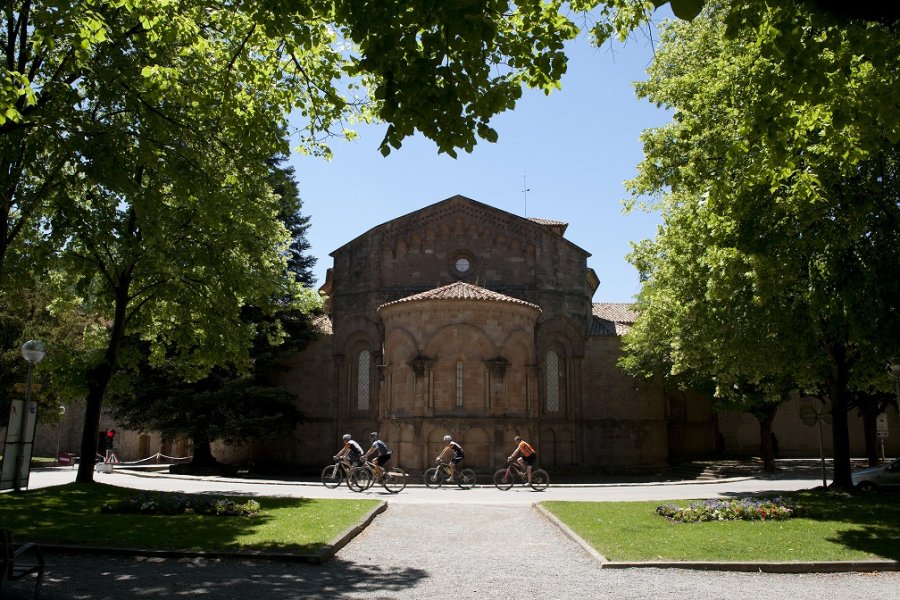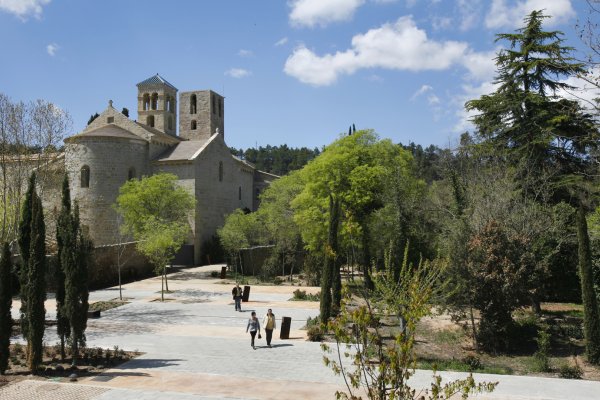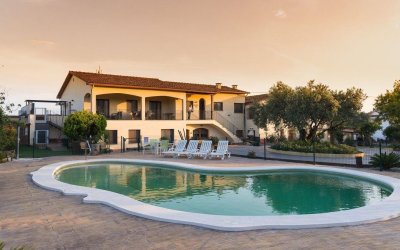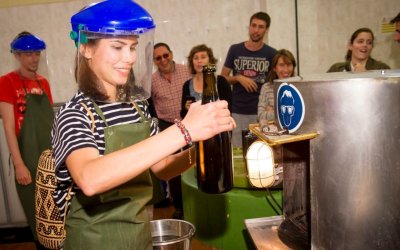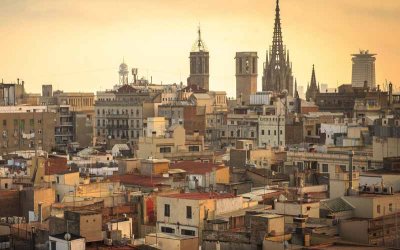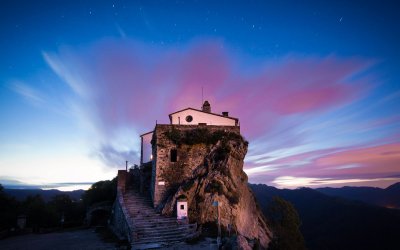Sustainable tourism means travelling with a conscience, discovering regions respectfully, connecting with cultural and natural heritage and supporting local economies. In this sense, the Camí Oliba is an ideal eco-experience for those looking for a deep immersion in the history, landscape and traditions of inland Catalonia.
This hiking and cycling route covers almost 300 km between Montserrat and the Pyrenees, linking the regions of Bages, Osona and Ripollès. Its common thread is Bishop and Abbot Oliba, a key figure in the dissemination of culture in medieval Catalonia, and connects some of the most emblematic works of Romanesque art in our country. Therefore, the Camí Oliba is defined as a journey through the origins of the country and a real open-air museum, where each stage is a lesson in art and history.
A route adapted to everyone
The Camí Oliba is designed so that everyone can participate, whether on foot or by bicycle. It has been divided into three main sections, each with its own peculiarities and points of interest. For the more adventurous, there are mid-mountain sections with steeper slopes and spectacular views. For those looking for a more relaxed experience, the main route offers shorter stages with accessible tourist services. Initiatives have also been implemented to make it more inclusive, eliminating barriers and adapting it for people with reduced mobility.
The cradle of Romanesque art in Catalonia
Romanesque art is the backbone of the route. Cathedrals, churches, monasteries and medieval villages are part of a unique tour of some of the most symbolic jewels of Catalonia's heritage, including the Seu de Manresa, the monastery of Ripoll and Sant Joan de les Abadesses. The Cases d'Oliba initiative, promoted by the Diocese of Vic, enables you to visit several monuments using combined tickets at affordable prices.
In addition, during the stages of the trail you can enjoy guided tours, family activities and workshops such as the Ripoll Scriptorium, where the visitor becomes a medieval copyist, or the mysterious experience that awaits you at the Món Sant Benet when the sun goes down. Proposals such as "Bishop Oliba and the lost manuscript", in Vic, turn cultural discovery into an adventure.
Caring for the territory and the traveller
The Camí Oliba not only transports us to the past, but also supports the future of the regions it passes through. Through its Guide of Good Practices, it promotes responsible tourism that encourages staying in family-run establishments, consuming local products, hiring local guides and reducing the environmental impact of our trip.
A free route card is also offered to participants, enabling them to collect stamps at each stage, obtain a diploma and participate in a raffle. This card provides access to discounts on services and activities in the various municipalities along the route, to further amplify the connection with the territory.
With the comfort of the traveller also in mind, the flexibility of the Camí Oliba is one of its biggest appeals. It can be completed in its entirety, in stages or by choosing only the sections that are most interesting, adapted to the preferences of each individual. There are the routes focused on nature, culture, and others that are dedicated to wine tourism, or those specifically designed to enjoy with children. For this reason, the Camí Oliba is an ideal solution for both experienced hikers and families who wish to discover inland Catalonia in an original and enriching way.
